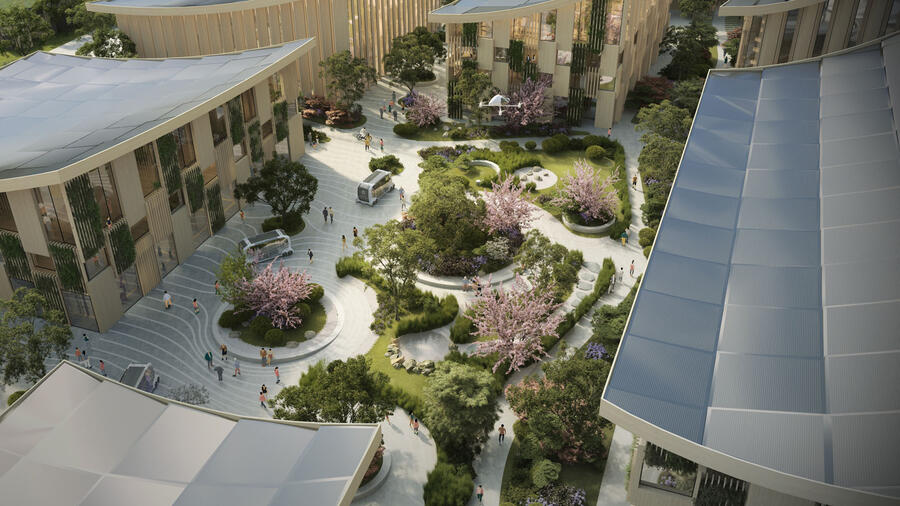Toyota unveils plans for futuristic city only for autonomous cars at CES 2020
Car giant will develop 175-acre city in Japan to test future tech - with only autonomous EVs allowed
Toyota will build a 175-acre prototype ‘city of the future’ near Mount Fuji in Japan, which will be used to develop and test future technologies.
The Woven City, which will be powered by hydrogen fuel cells, will initially be home to around 2000 full-time residents and researchers, with only zero-emission autonomous vehicles allowed on the main thoroughfares. It will be used by Toyota to test the technology in areas including autonomy, robotics, personal mobility, smart homes and artificial intelligence.
The project was announced by Toyota boss Akio Toyoda at CES in Las Vegas. Toyoda called the bold project “a unique opportunity to develop future technologies”, adding: “We welcome all those inspired to improve the way we live in the future to take advantage of his unique research ecosystem and join us in our quest to create an ever-better way of life and mobility for all.
The Woven City will feature a network of connected sensors that will connect with each other through a digital operating system. Toyota has commissioned architect Bjarke Ingels, whose previous projects include 2 World Trade Center in New York and Lego House in Denmark.

Toyota gets mildly adventurous with its second-generation Aygo city car - but does it do enough to hold off advances from the Volkswagen Up, Hyundai i10 and Kia Picanto?
The city’s masterplan will include three street designations. Key streets will be reserved for faster vehicles, with others open to a mix of lower-speed vehicles, personal mobility machines and pedestrians. Some streets will be park-style promenades only open to pedestrians. The three street types will be woven together ‘in an organic grid pattern’, which Toyota says will ‘help accelerate the testing of autonomous transport’.
With only autonomous zero-emission vehicles allowed on the main thoroughfares, Toyota will deploy a fleet of its e-Palette vehicles to be used for public transport, deliveries and as mobile shops.
Work on the Woven City is due to start in 2021, and construction will use fully sustainable materials. Most buildings will be made from wood using a mix of traditional Japanese techniques and robotised production methods, with roofs covered in solar panels to supplement the hydrogen fuel cells.
Residential buildings will feature AI to monitor occupants’ health, with in-home robotics to provide support. Toyota will also construct neighbourhood parks, a large central recreation area and a large central plaza.
RELATED ARTICLES
Autoliv Plans JV for Advanced Safety Electronics With China’s HSAE
The new joint venture, which is to be located strategically near Shanghai and close to several existing Autoliv sites in...
JLR to Restart Production Over a Month After September Hacking
Manufacturing operations at the Tata Group-owned British luxury car and SUV manufacturer were shut down following a cybe...
BYD UK Sales Jump 880% in September to 11,271 units
Sales record sets the UK apart as the largest international market for BYD outside of China for the first time. The Seal...






 08 Jan 2020
08 Jan 2020
 6065 Views
6065 Views




















 Ajit Dalvi
Ajit Dalvi




